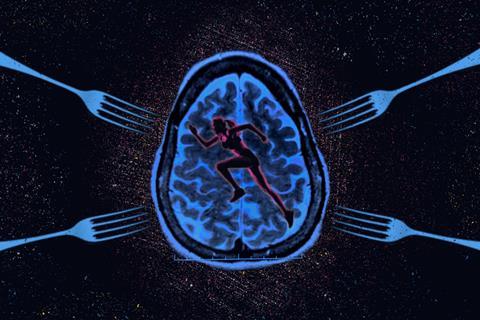Nick Pollard explains how a personal family trauma is blessing families across the UK and beyond

Having come through the trauma of the serious ilness of their daughter, Nick and Carol Pollard, inspired by their daughter, Dr Elizabeth McNaught founded ’Family Mental Wealth’, a government funded social enterprise working in collaboration with a number of groups. We asked Nick to tell the story.
NexGen: Nick, perhaps we could start by you telling the story of how your daughter Elizabeth became ill.
NP: It crept up on us slowly and it’s often hard to distinguish between the development of mental ill health and normal teenage adolescent behaviour (she was aged 13 when it all began). But she started restricting foods, she started exercising obsessively, and it got to a point where you could see that it was becoming obsessive. Eventually she became very ill and was hospitalised when she was aged 14. At one point we were told it was possible she might not make it.
NexGen: Every parent’s worst nightmare?
NP: It was a big learning experience for us as parents; my backgrounds is in psychology, having trained originally as a research psychologist and was heading towards an academic career. And so, I thought, what kind of father am I? How had I not noticed it?
YCW: But you had the courage to not keep silent and quiet about this. You realised that your story could be a value to others?
NP: Yes, over many years, Lizzie got better, she went to medical school and qualified as a doctor. It was her vision to try and do something to help those with mental health challenges, including eating disorders like she had and also mental health challenges such as anxiety, depression, OCD, self harm. I have a background in social enterprise and so she together with my wife Carol, formed ’Family Mental Wealth’and were thrilled to see so many bodies excited to work with us.
NexGen: We hear that mental health challenges affect many young people?
NP: There are about 18% of young people from the latest NHS figures, And it comes in various forms. The Royal College of Psychiatrists says that 10% of consultants, psychiatrists posts are empty and they can’t fill them. So there’s a shortage right now of clinicians, and it’s never going to keep up with the future demand.
NexGen: What does Family Mental Wealth aim to do?
NP: We promote a number of methods of skills based caring. These kinds of skills are transferable, whatever situation you’re in, and they can also help prevent mental ill health as well if we can help the young person to develop a mentally healthy life.
We were overwhelmed by people gathering around our vision, including the South London and Maudsley NHS Foundation Trust, Sussex University, Southampton University, and then we started attracting government funding from the Department for Health and Social Care.
Parents and carers are the closest to the young people, and don’t change jobs and move on after six months! From a health economics perspective, for the NHS budget, they’re also the cheapest. So we’ve created these digital tools for young people to use themselves within a family context.
At www.familymentalwealth.com we provide resources for parents and carers. There is a parent toolkit with access to the first part of it completely free. Then a subscription if you want to access the more in-depth stuff with over 100 short videos from experts and also from ordinary people who’ve been through it: parents and children who have come improved their mental ill health.
We also have resources for direct use of young people called ‘Headway’ . These include therapeutic activities for the young person to use: all solid evidence based and clinically sound. Our collaborators at the School of Psychology at the University of Sussex did a huge amount of research for us on what are the best evidence based insight. They use what we call psychometric tests, with in particular two insight tools. One’s called a thought slider, and one’s called a feelings wheel. They help young people discern where they are at and give them some strategies to improve. Some parents have said they too benefit from the ideas.




























